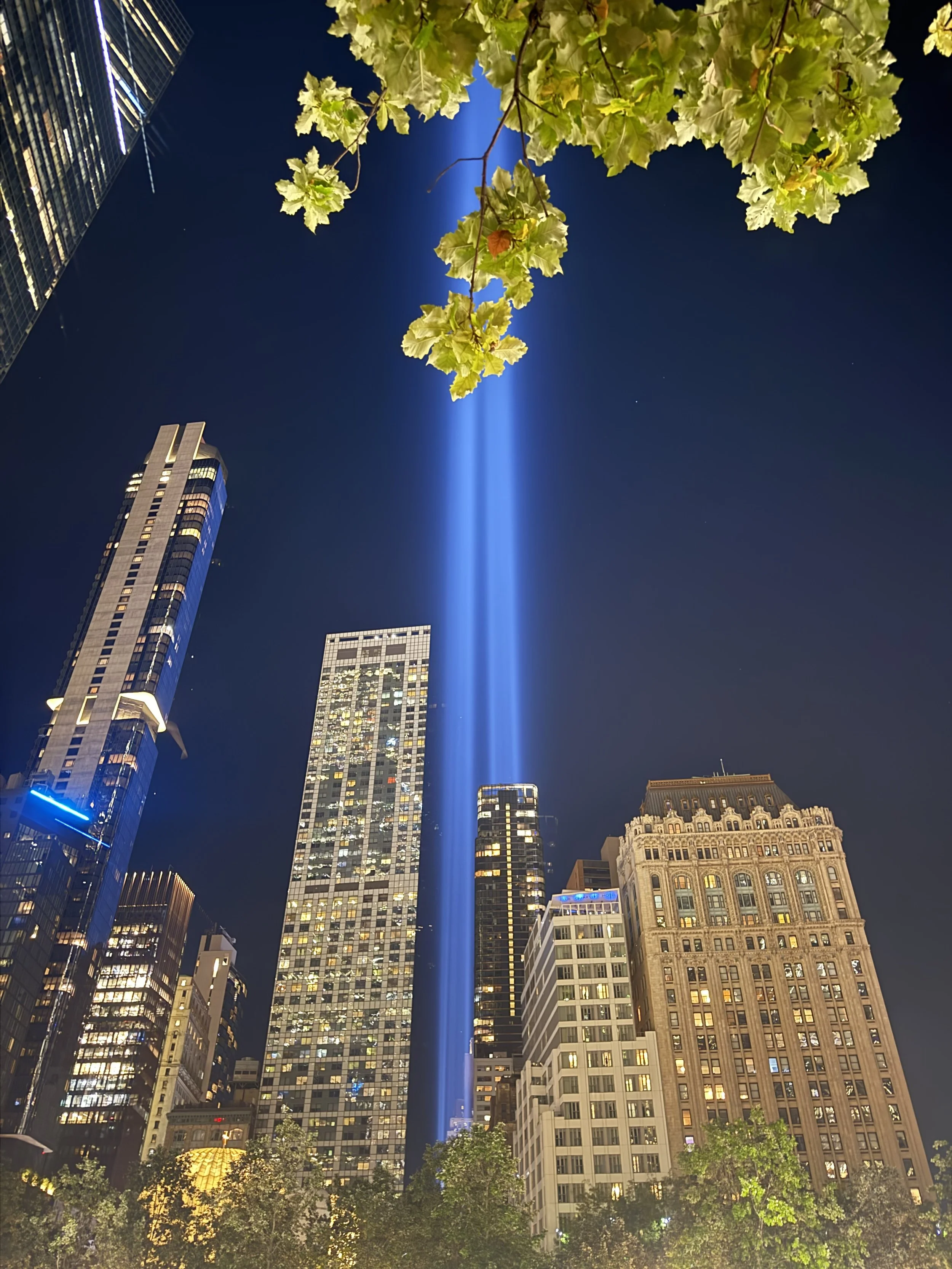High School Commemorates 9/11
Heschel High School commemorated September 11 with a tekes (ceremony), welcoming guest speaker Matt Waxman to share his personal experience of that day. Following the attacks, Mr. Waxman was among a small team evacuated to the underground White House bunker, where he helped plan the U.S. government’s response. Matt is currently a law professor, and teaches and writes on national security issues. Earlier in his career, he served in senior positions at the White House, the Pentagon, and the State Department.
The program began with a Kavana (Intention) from Ziv Gedzelman ‘27 inspired by a poem by the late Meena Alexander, an Indian-American poet, written in the fall of 2001. Read the Kavana below.
As part of the commemoration, the High School community observed six moments of silence to commemorate the tragic events of the day. This year, in connection with the upcoming 250th anniversary of the United States, Heschel High School will dedicate its programming to exploring public service and recognizing those who serve.
9/11 Kavana (Intention) from Ziv Gedzelman ‘27
Good Morning,
We gather today to commemorate the events of September 11th, 2001 and honor its victims. To begin, I would like to share a poem by the late Meena Alexander, an Indian-American poet, written in the fall of 2001.
Photo by Ziv Gedzelman
Pitfire
In altered light I hear a bird cry.
By the pit, tor of metal, strut of death.
Bird song yet. Liturgie de cristal.
Flesh in fiery pieces, mute sediments of love.
Shall a soul visit her mutilated parts?
How much shall a body be home?
Under these burnt balconies of air,
Autumnal duty that greets us.
At night, a clarinet solo I put on:
Bird song pitched to a gorge, a net of cries.
In the news, a voice caught on a lost line:
“We’ve even struck the bird’s throat.”
Alexander observes that despite this devastation, bird songs persist. She references Liturgie de crystal, Olivier Messiaen’s Quartet For the End of Time, composed in a German prison of war camp in WWII. Messiaen used bird song to symbolize eternal resilience in the face of unimaginable violence.
Later in the poem, Alexander refers to a piece of the Quartet, the solo clarinet, that represents bird song. This piece embodies the contrast between the hopefulness of the bird song and the despair of the surrounding environment. She portrays the solo clarinet against a backdrop of a gorge, on a net of cries; of overlapping grief woven together. But how can this bird song be free, be joyful, in the presence of such profound human suffering? She ends the poem by stating that “We’ve even struck the bird’s throat”, that the pain of 9/11 runs so deep, that it has tainted the symbol of eternal hope. That humanities capacity for beauty has been silenced by violence.
But there is still hope. Earlier in the poem she wrote that “under these burnt balconies of air, autumnal duty greets us”. That especially around this time of year, we have a moral responsibility to not sulk in despair.
As President Bush articulated that evening on September 11th: "These acts shattered steel, but they cannot dent the steel of American resolve.”
If you take one thing from this kavana let it be this: That resolve is itself a kind of birdsong. And so even when it feels drowned out by the sound of grief, we have a duty towards remembrance, towards upholding our values, and towards reflection about how, as a nation, we choose to live in the wake of tragedy.








